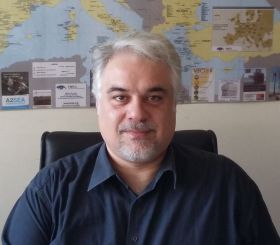Course Overview
The MOOC aims to give an overview and the knowledge for the implementation of the eco-design in every product or system design in the context of the energy transition. In particular, using a case based approach, and tools’ analysis, the course will start with the basic and core legislation then moving to the economics and working principle and methodologies used for implementing eco-design and energy efficient design. After examples of energy and environmental performance indicators calculations and presentation of different approaches and case studies, the implementation in every potential product or system is presented and discussed, under the context of smart, affordable and sustainable energy context.
Learning Objectives
The MOOC aims to give an overview and the knowledge for the implementation of the eco-design approach and principles in every product or system design in the context of the energy transition. In particular, using a case-based approach, and tools’ analysis and use, the course will start with the basic and core legislation then moving to the economics and working principle and methodologies used for implementing eco-design and energy efficient design. After examples of energy and environmental performance indicators calculations and presentation of different approaches and case studies, the implementation in every potential product or system is presented and discussed, under the context of smart, affordable and sustainable energy context.
Outcomes
Once students have completed the course, they will be able to:
- Analyze the EU Energy Efficiency, EcoLabel, EcoDesign, RoHS and WEEE Directives.
- Identify the connection of the energy and environmental aspects of the design process of a product and a system, during the total life cycle of a product.
- Identify the Economics of Energy Efficient Design and EcoDesign of products and systems.
- Identify the Consumer Orientation - Innovation through Eco-Design and Energy efficient Design, based on the total life cycle analysis approach.
- Combine methods for developing and adopting strategies for Eco and Energy efficient design of products and systems through analysis of all phases in their life and reverse engineering approaches.
- Analyze different components and methods for reducing the impact of a product or equipment in the environment during the different phases of its life cycle.
- Combine the Concepts and Methodologies and Basic Tools for the Energy efficient and Eco Design of Products.
- Ability to perform Life Cycle Analysis and Life Cycle Costing Analysis during the design of a product and the calculation of the Total Cost of Ownership
- Intergrade RES during the energy efficient and ecological/sustainable design process or during improvement schemes for systems and products.
- Ability to perform the studies and work and to assess their results considering this parameter.
- Ability to use the principles and methodologies of energy efficient and ecological / sustainable design (Eco-Design) in his professional activity.
Do you want to know more about the ASSET project and get engaged to it? Sign in the newsletter and community on energytransition.academy. Be part of us.
Certification and Additional Info
Dear participants,
Please note that the platform delivers automatically the certificate of participation when the students reaches the 80% of the course, otherwise it is a completion certificate.
On it there is the logo and name of the project, the title of the course and the names of teachers.
Please take into consideration that the certificate will be delivered to all of you form everywhere in the world.
Sincerely,
Prof. Dr. Constantinos S. Psomopoulos
Use of content and licenses
CC-BY-SA-ND
Course Structure
- Lesson 1 - Introduction to Energy Efficiency and EcoDesign. The EU Energy Efficiency and EcoDesign Directives.
- Lesson 2 - Environmental indicators in energy efficient design and ecodesign
- Lesson 3 - The Economics of Energy Efficient Design and EcoDesign of products
- Lesson 4 - Consumer Orientation - Innovation through Eco-Design and Energy Èfficient Design
- Lesson 5 - The connection of the energy and environmental aspects during the design process. Analysis of the Concepts and Methodologies
- Lesson 6 - The Life Cycle Analysis and Total Cost of Ownership
- Lesson 7 - Basic Tools for the Energy efficient and Eco Design. Part 1
- Lesson 8 - Basic Tools for the Energy efficient and Eco Design of Products. Part 2
- Lesson 9 - The development of a strategy for Eco and Energy efficient design
- Lesson 10 - The role of RES in ecological design of systems and products
- Lesson 11 - Case Studies for products
Teacher
Costantinos Psomopoulos
Professor Constantinos S. Psomopoulos, is the
Director of the High Voltage and Energy Systems Research Lab of the School of
Engineering of the University of West Attica. He has worked for several years
in different industrial sectors (Shipyards industry, Waste Management
facilities, Energy facilities, etc), and he is now also an independent
consultant. His research interests includes energy efficiency and RES,
sustainable waste/resources management, EcoDesign of products and systems, and
critical energy infrastructure operation and protection. He has participated in
many National, International and EU founded projects in these fields. He was
the technical manager of the “Study for preparing the first Working Plan of the
EcoDesign Directive, ENTR/06/026”, Service Contract for EU/DG ENTR”. Since 2017
he cooperates as an expert with the ClimateKIC –Malta, he is member of the
Stakeholders Consultation Forum (Expert) for the revision of the Ecodesign
Regulation EU 548/2014 on Power Transformers, TWG Member for the Development of
the EU Green Public Procurement (GPP) Criteria for Data Centres by EU JRC, and
evaluator of EURAMET in the fields of Energy, Industry and Prenormative. He was
Professor in PUAS from 2007 until March 2018, when he joint the Electrical and
Electronics Engineering Department of University of West Attica. He is Research
Associate in Earth Engineering Center of Columbia University NY since 2011, and
he is Visiting Professor in University d’ Auvergne since June 2016.




